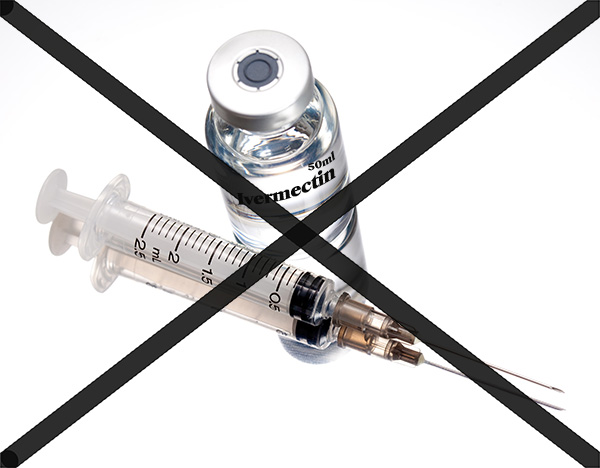Do NOT Use Ivermectin For Animals to Treat COVID-19 in Humans

By: Brittany Bevis
You may have seen in recent news that a study has determined that ivermectin, a commonly used anti-parasitic drug, inhibits the replication of the virus that causes COVID-19, (SARS-Cov-2) in vitro.
The research study, “FDA-Approved Drug, Ivermectin, Inhibits Replication of SARS-CoV-2 In Vitro,” determined that Ivermectin is an “inhibitor of the COVID-19 causative virus (SARS-CoV-2) in vitro” and that a “single treatment is able to effect a 5,000-fold reduction in the virus at 48 hours in a cell culture.” Because ivermectin is a FDA approved drug for parasitic infection, like strongyles, worms, and bots in horses and heartworm disease in dogs, it is widely available and may hold potential for future research in the fight against the COVID-19 pandemic.
However, the FDA is cautioning that people should not self-medicate by taking ivermectin products for animals. While ivermectin tables are approved for use in people for the treatment of some internal parasitic worms and other external conditions, like head lice and rosacea, the FDA explains that people should never take animal drugs, because their safety and effectiveness has only been evaluated for a particular species. Furthermore, people should not take ivermectin unless it has been prescribed by a licensed health care provider.
Why might an anti-parasitic drug be effective against a virus? Experts believe the drug helps to block the viral RNA from invading healthy cells, which may give the host’s immune system more time to fight it off. While these in vitro results are certainly compelling, this study was conducted within a petri dish in a laboratory, and the drug wasn’t given to humans nor animals. After all, there have been other drugs that showed promise in vitro that simply didn’t pan out when they progressed to human trials.
The bottom line is that while this study is promising, this in no way indicates that people should start taking ivermectin for treatment of COVID-19.
Click here to read an open letter from the FDA.
Click here to read FAQ- COVID-19 and Ivermectin For Animals.










